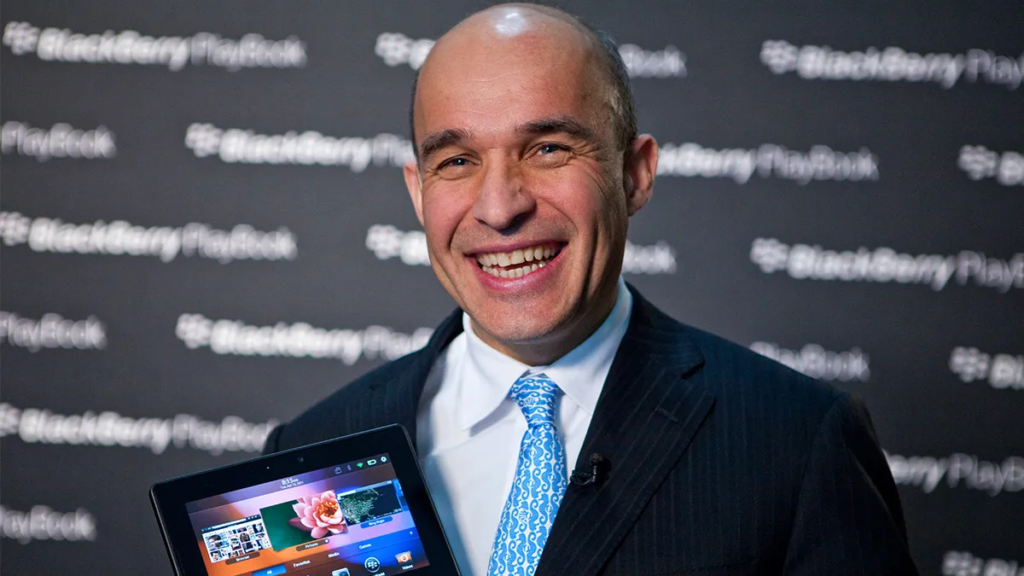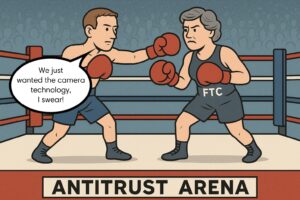This week’s edition of the GME3 features a massive update to Quebec’s rules regarding promotional contests, yet another social media case being elevated to the US Supreme Court, and scathing criticism of impending Bill C-27 from former BlackBerry CEO Jim Balsillie. Find the full stories below!
Gambling
QC Sweepstakes Rules Get Swept
This past Friday, October 27, the government of Quebec enacted some significant changes to the provincial laws regarding publicity contests.
Publicity contests and sweepstakes are marketing tools frequently used by businesses to promote their products, get greater exposure, and increase customer engagement. People like to enter them, whether it’s via Wheel of Fortune, Starbucks, or L. Ron Hubbard’s Writers of the Future Contest, but until now, citizens of Quebec have been unable to participate. Due to the stricter laws, most companies exclude Quebec residents from entering at all.
Before October 27th, the Régie des alcools, des courses et des jeux (the Régie) had the following restrictions in place:
The contest must be registered with the Régie,
Duties must be paid to the Régie, either 3% of the total value of the prizes offered to contestants in one or more Canadian jurisdictions that include Quebec, or 10% of the total value of the prizes offered exclusively to Quebec contestants.
Rules for the contest must be filed with the Régie, and no changes to the contest can be made without their approval and
A report must be filed with the Régie within 60 days of the draw date detailing the names and addresses of the winners. Furthermore, all entry forms and other documentation must be held for 120 days following the draw.
As of Friday, these rules changed significantly. In fact, all of these rather arduous requirements have been entirely abolished – organizers no longer have to register their competition, pay any duties, or provide the winners list to the Régie. Even further, the Régie has eliminated the requirement to provide specific disclosures as a part of the contest rules and organizers no longer need to seek approval to change their contest after it has been launched.
While the Régie will continue oversee all contests filed before October 27, this marks a dramatic change in the province’s approach to promotional sweepstakes. Could it signal that the Régie’s attitude towards regulated igaming will change similarly? We’ll have to wait and find out.
Media
Supreme Court ‘Block’ Party
The Supreme Court of the United States has taken on a new case related to social media. The question this time – originally raised in the Trump era of Twitter – is whether a public official is allowed to block someone on social media, or if doing so constitutes a violation of the First Amendment right to free speech.
This specific case revolves around members of a school district board of trustees in Southern California who are being sued by parents that were blocked on both X and Facebook, as well as a city official for Port Huron, Michigan who blocked a member of the public on Facebook. These cases had opposite outcomes (a lower court ruled in favour of the parents in the California case, and another ruled against the Michigan man), demonstrating the legal uncertainty present here.
This case seems to hinge on whether these public officials were engaging in “state action” when they blocked critics on social media, or if they were acting in a more personal capacity. Early questions asked by the justices seem to demonstrate that it’s unclear when a social media account should be considered personal versus official. Some justices, including Justice Samuel Alito, argued that even a personal account that is used for government communications should not be considered private.
Other judges made similar points relating back to Trump – while he was in office, his Twitter account was frequently used to announce policies and wield authority. As Justice Elena Kagan said, “to cut a citizen off from that is to cut a citizen off from part of the way that government works.”
Between this case, the ongoing dispute between Meta and many US states, the lawsuit against TikTok in Utah, and more, we’re likely to see some significant changes in the laws regulating social media soon. Make sure to follow GME Law on LinkedIn to stay informed about any other changes that may follow!
Entertainment
Bill C-27: Balsillie Backlash
Former BlackBerry CEO, and subject of the movie of the same name, Jim Balsillie has publicly criticized Bill C-27, the Digital Charter Implementation Act, on the grounds that it will have “profound consequences on Canada’s economic prosperity, freedom, democracy, and the well-being of our children.”
Bill C-27 has three goals:
Replace Canada’s existing privacy legislation (the Personal Information Protection and Electronic Documents Act or ‘PIPEDA’) with the Consumer Privacy Protection Act (CPPA)
Establish an administrative tribunal to hear appeals and impose penalties related to violations of the CPPA.
Implement new regulations on artificial intelligence.
The Bill is currently in the middle of what will likely be a long committee study in the House after being introduced by Industry Minister François-Philippe Champagne in June of 2022.
Representing the Centre for Digital Rights (CDR), Balsillie criticized the Bill, arguing that the approach is “misguided” and does not acknowledge the harmful nature of the business of data collection. He argues that at the heart of the data economy is using information to manipulate people into doing things that they wouldn’t have done otherwise. He told the committee, rather scathingly, that “We are going to look back in 10 years and think it’s remarkably absurd that we did this to our children. This is your chance to be on the right side of history.” Balsillie also criticized the third section of the Bill, regarding AI, for overly focusing on the harm that AI can cause to individuals rather than the collective good of groups and communities.
Minister Champagne appeared before the committee last month to announce that he planned to make several changes to Bill C-27 with the goals of reaffirming every Canadian’s right to privacy, as well as instituting stronger rules regarding the protection of children’s privacy. We at GME Law will be monitoring the progress of this Bill closely, so keep an eye out for future updates!
GME Law is Jack Tadman, Zack Pearlstein, Lindsay Anderson, and Will Sarwer-Foner Androsoff. Jack’s practice has focused exclusively on gaming law since he was an articling student in 2010, acting for the usual players in the gaming and quasi-gaming space. Zack joined Jack in September 2022. In addition to collaborating with Jack, and with a keen interest in privacy law, Zack brings a practice focused on issues unique to social media, influencer marketing, and video gaming. Lindsay is the most recent addition to the team, bringing her experience as a negotiator and contracts attorney, specializing in commercial technology, SaaS services, and data privacy.
At our firm, we are enthusiastic about aiding players in the gaming space, including sports leagues, media companies, advertisers, and more. Our specialized knowledge in these industries allows us to provide tailored solutions to our clients’ unique legal needs. Reach out to us HERE or contact Jack directly at jack@gmelawyers.com if you want to learn more!
Check out some of our previous editions of the GME3 HERE and HERE, and be sure to follow us on LinkedIn to be notified of new posts, keep up to date with industry news, and more!




